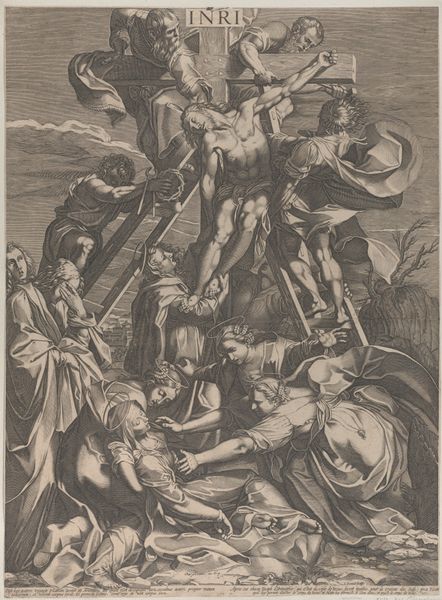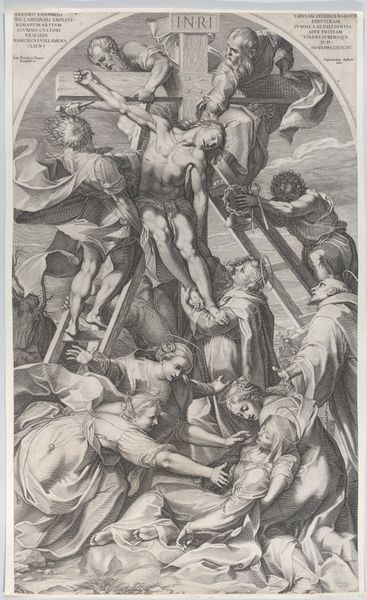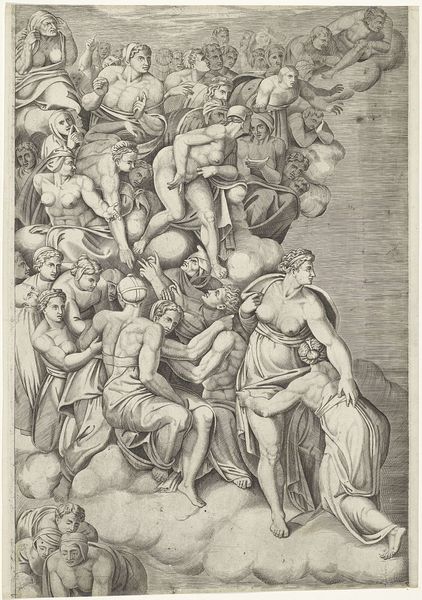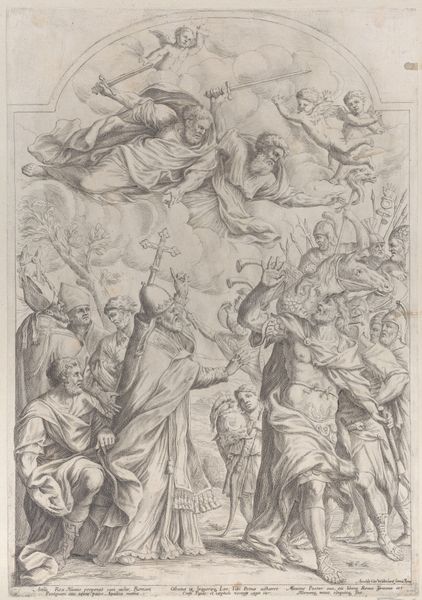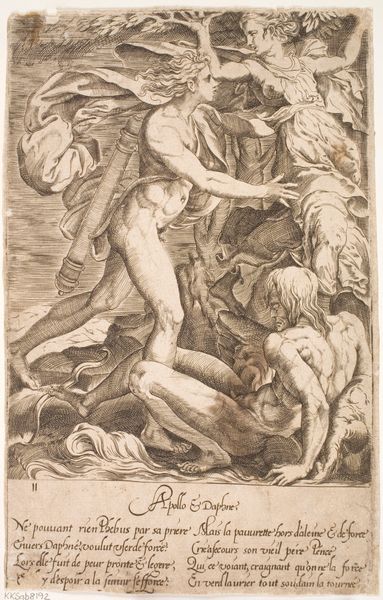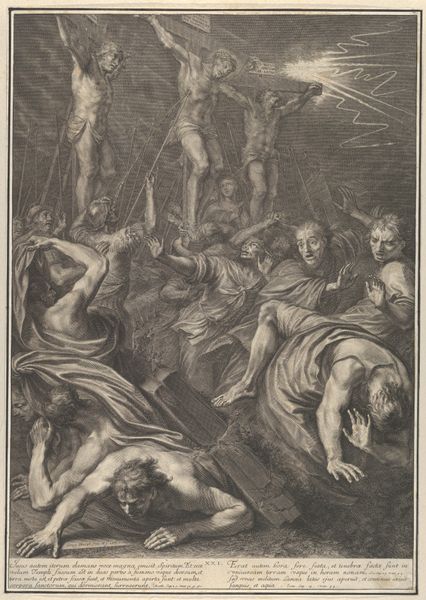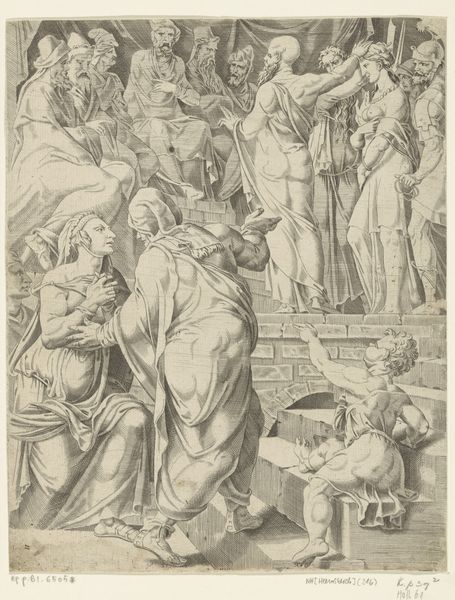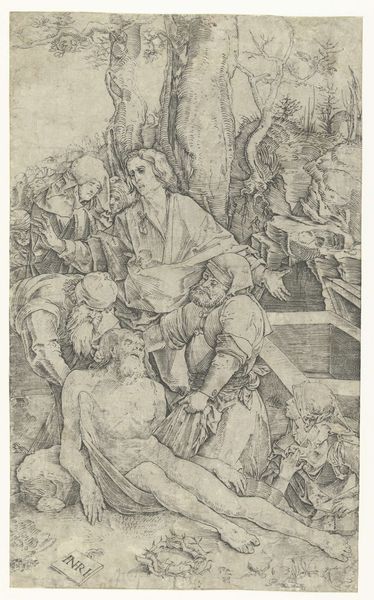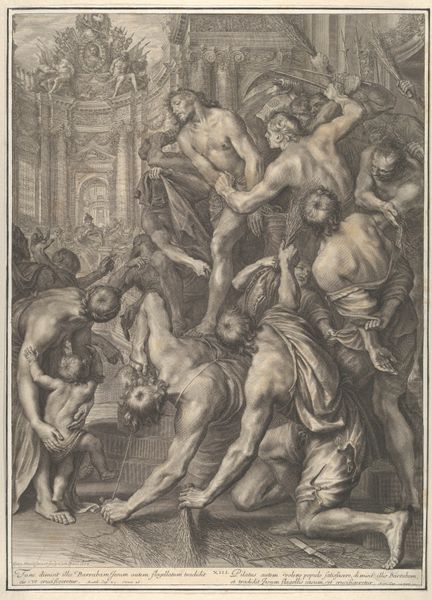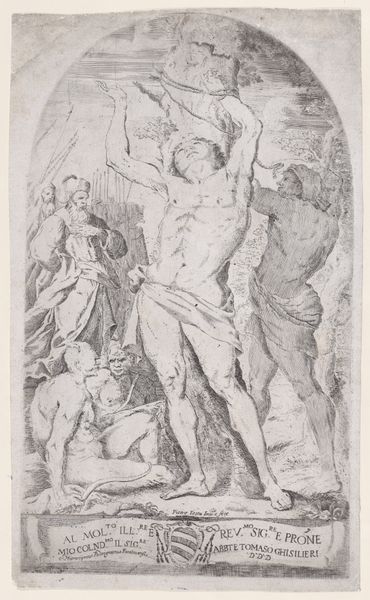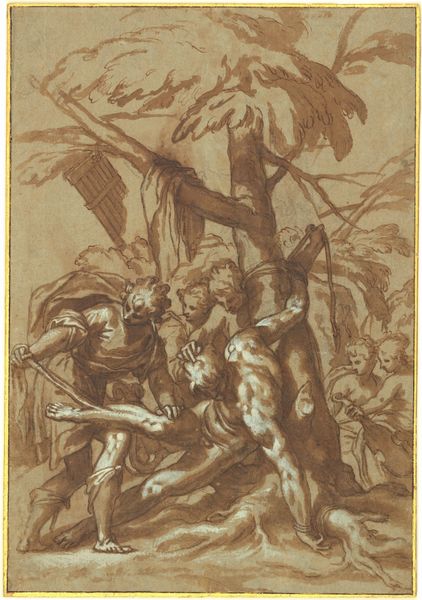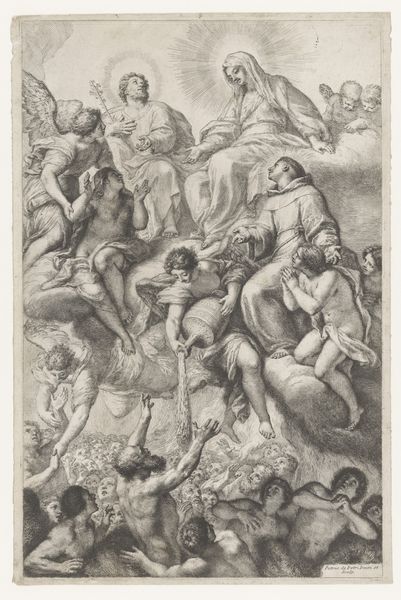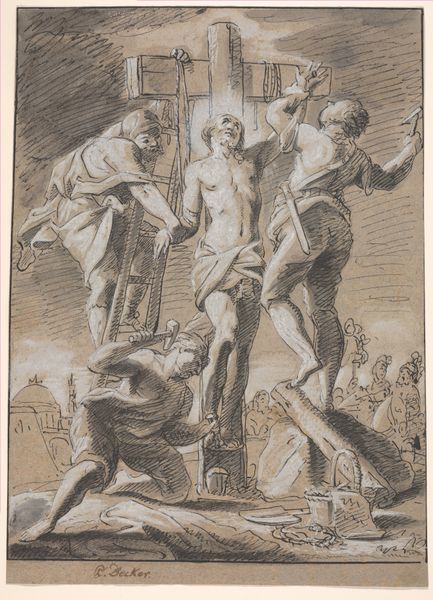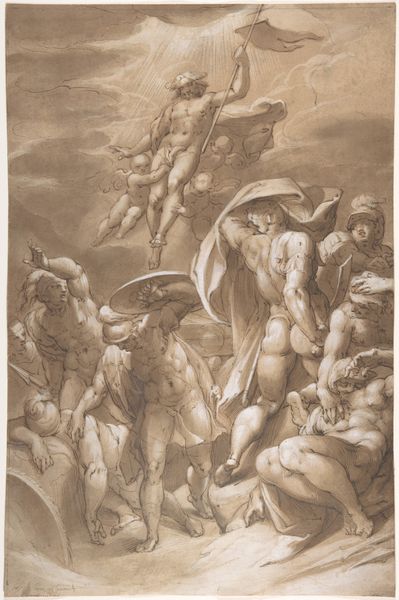
drawing, print, etching, ink
#
drawing
#
ink drawing
#
narrative-art
#
pen drawing
# print
#
pen sketch
#
etching
#
pencil sketch
#
mannerism
#
figuration
#
ink
#
history-painting
#
italian-renaissance
Dimensions: height 533 mm, width 337 mm
Copyright: Rijks Museum: Open Domain
Domenico Falcini made this print of the descent from the cross sometime in the early 17th century. It’s an etching, meaning that the artist would have used a sharp needle to draw this complex composition into a wax ground on a copper plate. The plate would then be immersed in acid, which bites into the exposed lines, then inked and printed. Falcini was clearly a skilled draftsman, capable of capturing the dramatic scene with precision. The image has a stark, graphic quality – all tonal variation is achieved through hatching, cross-hatching, and stippling. Look closely, and you can see how the density of these marks creates a sense of depth and shadow. Prints like this were relatively inexpensive, and thus circulated widely. They allowed artists to disseminate their ideas, reaching audiences far beyond the walls of a church or palace. So while this image depicts a moment of profound religious significance, it is equally important to consider its status as a reproducible, and therefore democratic, work of art.
Comments
No comments
Be the first to comment and join the conversation on the ultimate creative platform.
